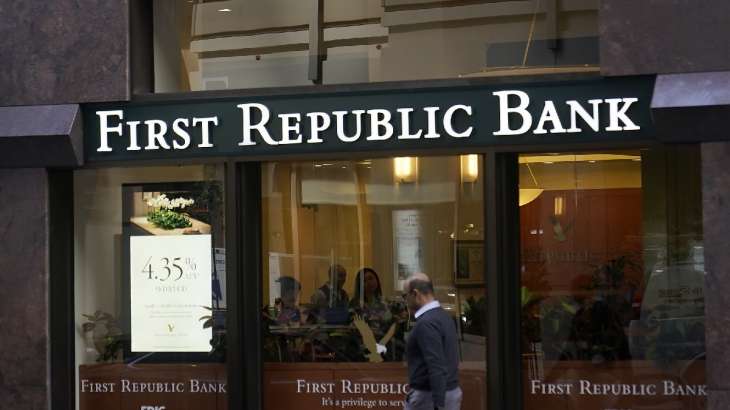
Regulators seized troubled First Republic Bank and sold all of its deposits and most of its assets to JPMorgan Chase Bank in a bid to stave off further banking turmoil in the US.
Third mid-sized US bank to fail
San Francisco-based First Republic is the third mid-sized bank to fail in two months.
It has struggled since the collapse of Silicon Valley Bank and Signature Bank and has grown increasingly concerned among investors and depositors that it may not survive due to the high amount of uninsured deposits and the risk of low-interest rate loans.
Branches reopened as JPMorgan Chase Bank
The Federal Deposit Insurance Corporation said early Monday that 84 First Republic Bank branches in eight states would reopen as JPMorgan Chase bank branches on Monday.
Regulators worked over the weekend to find a way forward before US stock markets opened. In many parts of the world, markets remained closed on Monday on account of the May 1 holiday.
Two markets in Asia, which opened in Tokyo and Sydney, gained momentum.
The FDIC said that as of April 13, First Republic had total assets of approximately $229 billion and total deposits of $104 billion. At the end of last year, the Federal Reserve ranked it 14th in size among US commercial banks.
Before Silicon Valley Bank failed, First Republic had a banking franchise that was the envy of most of the industry.
Its customers – mostly the rich and powerful – rarely default on their loans.
The 72-branch bank has made most of its wealth by making low-cost loans to the wealthy, which reportedly includes Meta Platforms CEO Mark Zuckerberg.
Fueled by deposits from wealthy individuals, First Republic’s net assets more than doubled to US$102 billion at the end of the first quarter of 2019, when its full-time workforce stood at 4,600.
But like deposits from Silicon Valley and Signature Bank, most of its deposits were uninsured – ie above the USD 250,000 limit set by the FDIC. And that worried analysts and investors.
If First Republic fails, its depositors may not get all their money back.
Those apprehensions were clarified in the bank’s most recent quarterly results. The bank said that depositors pulled out more than $100 billion from the bank during the April crisis.
San Francisco-based First Republic said it was only able to stop the bleeding after a group of big banks with $30 billion in uninsured deposits stepped in to rescue it.
Since the crisis, the First Republic has been looking for a way to quickly transform itself.
The bank planned to sell unprofitable properties, including low-interest mortgages offered to wealthy customers. It also announced plans to lay off up to a quarter of its workforce, totaling about 7,200 employees by the end of 2022. Investors remained skeptical.
Bank officials did not take any questions from investors or analysts as the bank reported its results, causing First Republic’s stock to sink further.
And when a firm has to sell assets quickly and has fewer bankers to find opportunities to invest in, it’s harder to restructure a balance sheet profitably.
It took years for banks like Citigroup and Bank of America to return to profitability after the global financial crisis 15 years ago, and those banks had the benefit of government-backed backstops to keep them going.
Read this also | No findings of impropriety in Sebi’s application to Supreme Court: Adani Group
Read this also | Big jump in property prices in Noida due to increase in circle rates. read the description